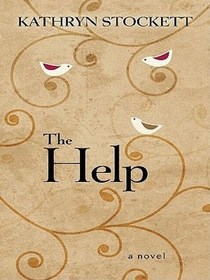Ignite Boldness
The women in the The Help are bold. The author, Kathryn Stockett, captures how a group of Southern women step out of their comfort zones, tell their stories and illuminate their lives. The black women divulge vignettes of life working in white households as maids. Their stories reveal perspectives that were squashed during the 1960s in the South. Jim Crow laws forced the help to live separate lives from the white families with separate bathrooms, separate tables, separate schools, separate and unequal. Yet those same, separate hands did intimate acts. They gave flavor to white peoples meals, changed diaper after diaper, polished silver, wiped the brows of sick men and women, scrubbed grout, braided hair, cleaned scrapes, they prayed.
The book, The Help, is not the story of Martin Luther King Jr., Medgar Evans, Malcom X or Rosa Parks. Sure, their essence lifts up the people in the book, but the visionaries in The Help are the women who work as maids. Twelve maids unite with the glue of a young, white woman who scribes their stories and gets their truths published. The stories embody humorous secret ingredients, tender child rearing moments, bold, loving actions for friends. The stories are turning points toward advocacy and human rights. The white woman realizes that silence is agreement and feels discord because of the racism brewing in her community. Her writing expresses her search for equity and dignity. She finds something to believe in, something that brings out the best in her and the help.
These risk takers inspire me to ignite my boldness, over come fears and tell stories. Everyday woman telling stories build up momentum and create positive change for humanity. I am inspired to scan the world for small acts of kindness. This book teaches me that bravery and small moments are the tipping points that help us live with meaning.
The women in the The Help are bold. The author, Kathryn Stockett, captures how a group of Southern women step out of their comfort zones, tell their stories and illuminate their lives. The black women divulge vignettes of life working in white households as maids. Their stories reveal perspectives that were squashed during the 1960s in the South. Jim Crow laws forced the help to live separate lives from the white families with separate bathrooms, separate tables, separate schools, separate and unequal. Yet those same, separate hands did intimate acts. They gave flavor to white peoples meals, changed diaper after diaper, polished silver, wiped the brows of sick men and women, scrubbed grout, braided hair, cleaned scrapes, they prayed.
The book, The Help, is not the story of Martin Luther King Jr., Medgar Evans, Malcom X or Rosa Parks. Sure, their essence lifts up the people in the book, but the visionaries in The Help are the women who work as maids. Twelve maids unite with the glue of a young, white woman who scribes their stories and gets their truths published. The stories embody humorous secret ingredients, tender child rearing moments, bold, loving actions for friends. The stories are turning points toward advocacy and human rights. The white woman realizes that silence is agreement and feels discord because of the racism brewing in her community. Her writing expresses her search for equity and dignity. She finds something to believe in, something that brings out the best in her and the help.
These risk takers inspire me to ignite my boldness, over come fears and tell stories. Everyday woman telling stories build up momentum and create positive change for humanity. I am inspired to scan the world for small acts of kindness. This book teaches me that bravery and small moments are the tipping points that help us live with meaning.
I absolutely loved the book and the movie. As always after reading the book the movie is disappointing.
This book is a must read, could not put it down, I will never eat chocolate pie again as long as I live.




